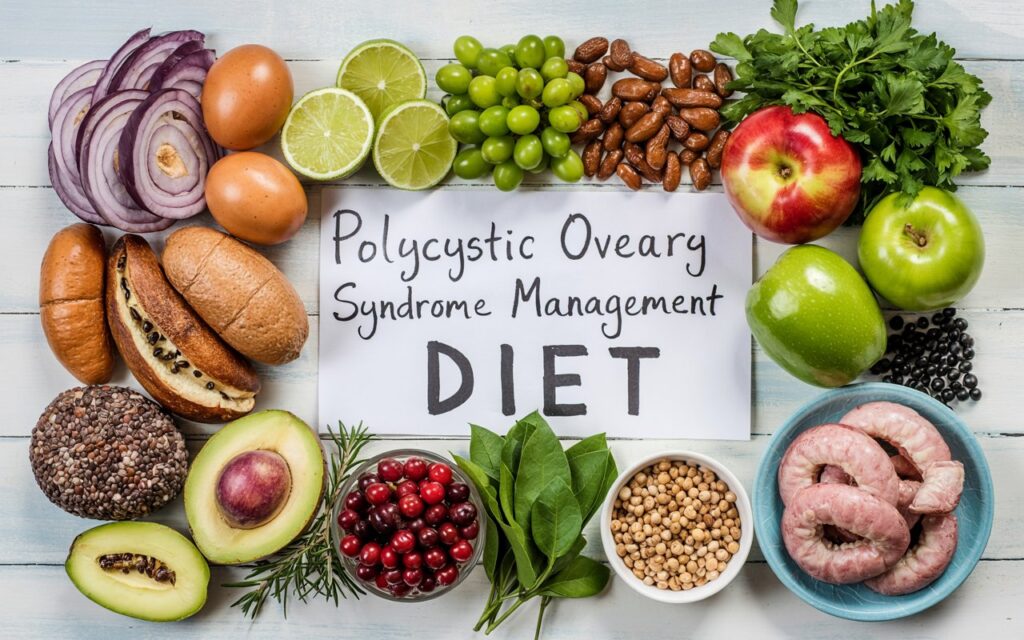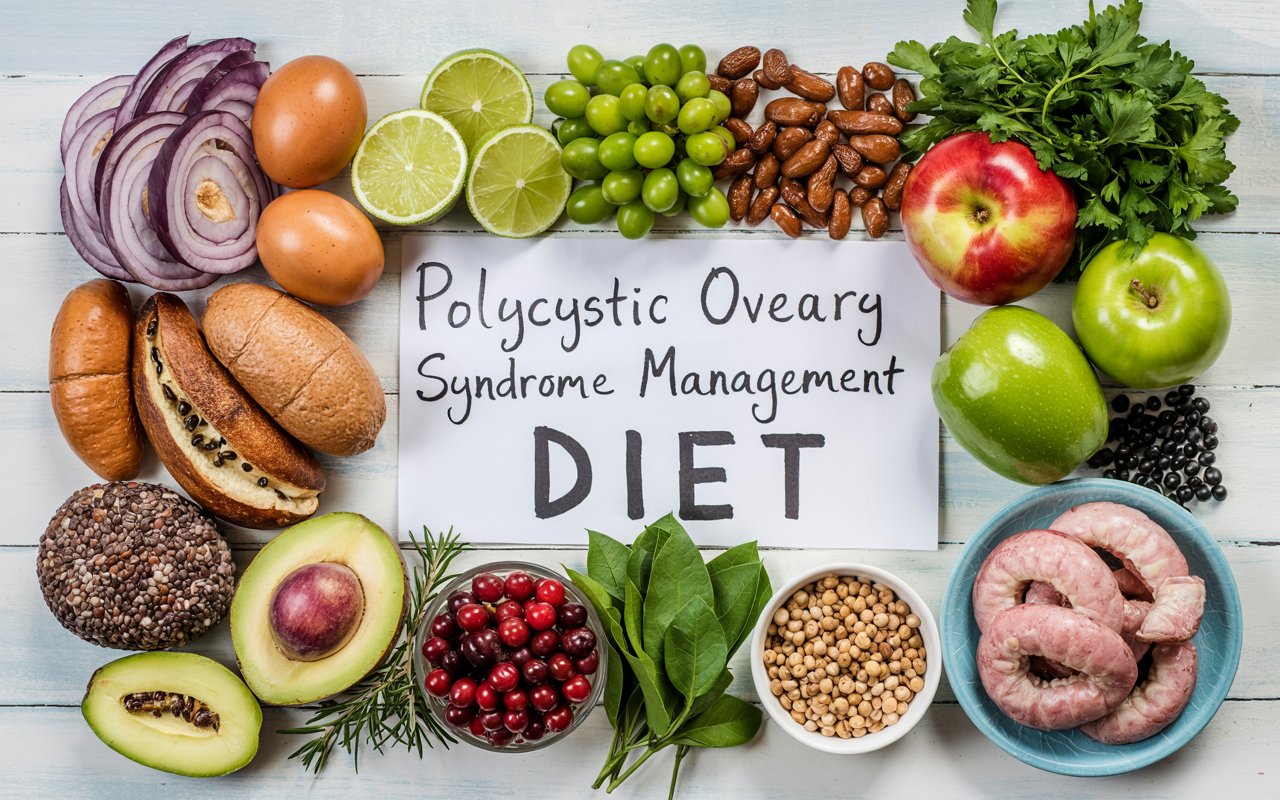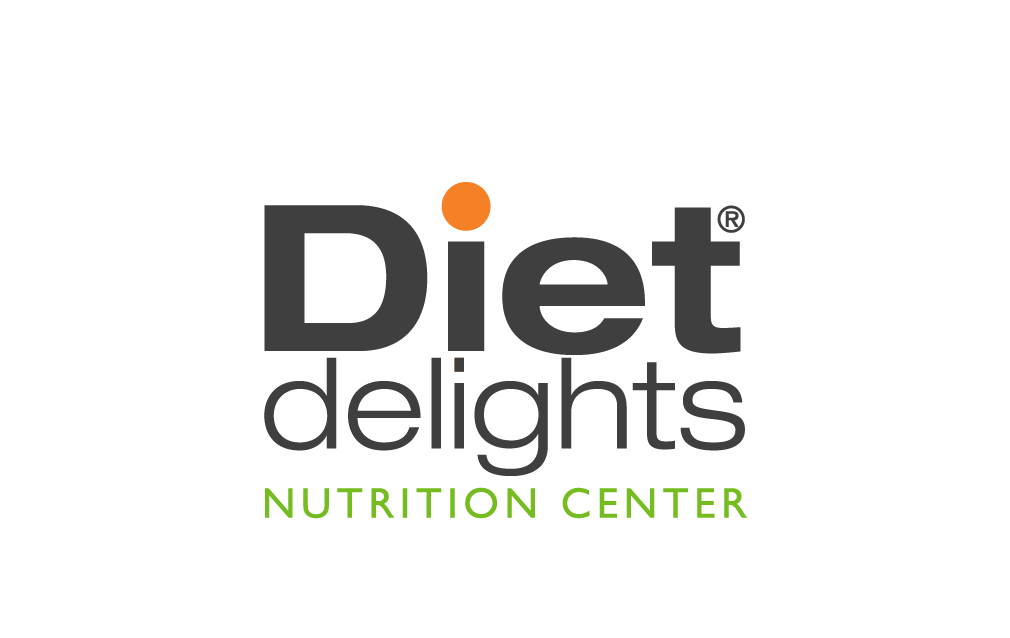blog

Polycystic Ovary Syndrome (PCOS) is a widespread endocrine condition that impacts countless women around the world. Characterized by hormonal irregularities such as irregular menstrual cycles, elevated androgen levels, and insulin resistance, PCOS can result in challenges like weight gain, acne, and fertility issues. Though there is no cure, adopting a dedicated PCOS management diet can significantly alleviate symptoms and improve your overall well-being. In this guide, we’ll delve into science-backed strategies, nutrient-rich recipes, and lifestyle recommendations to help you take control of your hormone health.
Understanding PCOS and the Role of Diet
PCOS disrupts your hormonal balance, often leading to insulin resistance. When your body struggles to absorb glucose efficiently, blood sugar levels spike, prompting your pancreas to produce more insulin. This increased insulin production can trigger the secretion of androgens (male hormones), further contributing to symptoms like hair loss and acne. A tailored PCOS management diet focuses on:
Stabilizing Blood Sugar Levels: Choosing foods that digest slowly to avoid spikes.
Reducing Inflammation: Including ingredients that help combat inflammation.
Supporting Hormonal Balance: Emphasizing nutritional choices that support overall hormonal health.
Promoting Sustainable Weight Management: Encouraging a balanced diet and lifestyle habits that contribute to long-term wellness.
By prioritizing whole, unprocessed foods and avoiding common dietary triggers, you can empower your body to manage PCOS more effectively.
Foods to Embrace in a PCOS Management Diet
1. Low Glycemic Index (GI) Carbohydrates
Low-GI carbohydrates break down slowly, helping to prevent sudden blood sugar spikes. Examples include:
Whole Grains & Starchy Vegetables: Quinoa, brown rice, oats, sweet potatoes, and legumes.
Non-Starchy Vegetables: Broccoli, spinach, cauliflower, among others.
Whole-Grain Bread: Enjoy in moderation to maintain steady blood sugar levels.
Pro Tip: Pairing carbohydrates with lean protein or a source of healthy fat (like avocado or olive oil) can further slow glucose absorption. Consider trying our Spiced Chickpea & Quinoa Salad for a delicious, fiber-rich meal!
2. Lean Proteins
Protein not only enhances satiety but also helps manage insulin levels effectively. Great options include:
Animal-Based Proteins: Grilled chicken, turkey, or fatty fish such as salmon and mackerel—rich in omega-3 fatty acids.
Plant-Based Proteins: Lentils, tofu, and edamame provide excellent alternatives for a balanced diet.
Diet Delights Recommendation: Enjoy our Herb-Crusted Salmon with Steamed Greens which perfectly balances omega-3 fatty acids and fiber to help reduce inflammation.
3. Healthy Fats
Incorporating anti-inflammatory fats plays an essential role in improving insulin sensitivity. Suitable choices include:
Monounsaturated Fats: Olive oil and avocados.
Omega-3-Rich Foods: Fatty fish and seeds like chia or flax.
Nuts: Walnuts and almonds are excellent snacks and ingredients in various dishes.
Recipe Idea: Blend up an Avocado & Spinach Smoothie with a sprinkle of chia seeds for a quick, nutrient-packed breakfast.
4. Fiber-Rich Foods
Fiber is key to regulating blood sugar and supporting digestion. Increase your fiber intake with:
Fruits: Berries, apples, and pears.
Vegetables: Leafy greens, broccoli, and Brussels sprouts.
5. Antioxidant-Packed Superfoods
Antioxidants help combat oxidative stress associated with PCOS. Include these in your diet:
Spices & Roots: Turmeric, cinnamon, and ginger.
Beverages & Treats: Green tea and dark chocolate (70% cocoa or higher).
Foods to Avoid or Limit
Certain foods can exacerbate PCOS symptoms. It helps to be mindful of:
Refined Carbohydrates and Sugars: Avoid white bread, pastries, and sugary drinks that cause insulin spikes.
Processed Foods: These are often high in unhealthy trans fats and additives, which can increase inflammation.
Dairy (for Some): In some individuals, dairy is linked to increased androgen levels. Consider alternatives like almond or oat milk if you notice adverse reactions.
Excessive Caffeine: Overconsumption may disrupt hormone balance. Herbal teas are a gentle alternative.

Building a PCOS-Friendly Meal Plan
Here’s a one-day sample meal plan inspired by Diet Delights’ approach:
Breakfast:
Spinach & Feta Omelette served with a slice of whole-grain toast.
A steaming cup of green tea to jump-start your metabolism.
Morning Snack:
A bowl of Greek Yogurt with Berries and Walnuts. For a dairy-free version, try using coconut yogurt.
Lunch:
Grilled Chicken Salad with a medley of mixed greens, avocado slices, cherry tomatoes, and a drizzle of olive oil dressing.
Afternoon Snack:
Hummus and Veggie Sticks (think carrots and cucumber) to keep energy levels stable.
Dinner:
Baked Salmon paired with Quinoa Tabbouleh and Roasted Asparagus for a balanced, nutrient-rich plate.
Dessert:
Enjoy Dark Chocolate-Covered Almonds (2-3 pieces) for a satisfying, wholesome treat.
Lifestyle Tips to Enhance Your PCOS Diet
Beyond the kitchen, a healthy lifestyle further supports PCOS management:
Stay Active: Engage in at least 30 minutes of physical activity daily—whether it’s brisk walking, yoga, or any exercise that gets your heart rate up.
Manage Stress: Incorporate mindfulness practices like meditation or deep-breathing exercises to counteract the effects of chronic stress.
Prioritize Sleep: Aim for 7–9 hours of quality sleep each night to regulate cortisol and hunger hormones.
These lifestyle modifications can greatly complement your dietary efforts and help you achieve balanced hormonal health.
PCOS Management Diet FAQs
Q: Can I ever have treats on a PCOS diet? A: Absolutely! Moderation is key. Opt for desserts like dark chocolate or fruit-based treats. We also offer our Date & Nut Energy Balls recipe, a guilt-free treat that satisfies your sweet tooth while keeping you on track.
Q: How long before I see results? A: While every individual is different, many notice improvements in symptoms within 8–12 weeks of consistently following a PCOS-friendly diet.
Q: Are supplements necessary? A: Supplements such as inositol, magnesium, or vitamin D may be beneficial for some women dealing with PCOS, but it’s best to consult your healthcare provider before starting any new supplement regimen.
Conclusion: Your Journey to Hormonal Balance Starts Here
Managing PCOS through a mindful, nutrient-rich diet isn’t about strict restrictions—it’s about empowering your body to heal and thrive. By choosing whole foods, balancing your meals, and incorporating healthy lifestyle habits, you can take significant steps towards managing PCOS symptoms and enhancing your quality of life. At Diet Delights, we’re dedicated to creating PCS-friendly recipes and personalized meal plans that make nourishment as enjoyable as it is effective.
Ready to transform your health? Visit today to explore more hormone-balancing recipes and embark on a journey towards a balanced, vibrant you!
Subscribe for Amazing Offers, Free Recipes and Newsletters
Quick Links
Our Contact
- 103, Al Nuaija Street, Al Hilal Area, Doha, Qatar
- info@dietdelights.com.qa
- +974 4419 6441
our timings
- Sunday to Thursday - 9am to 7pm
- Friday Closed

